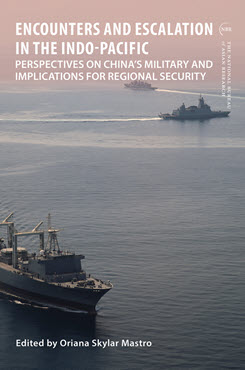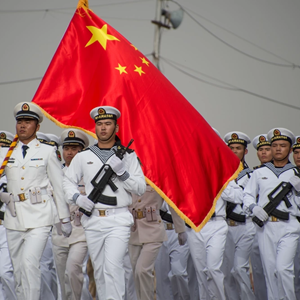Essay in NBR Special Report 108
The South China Sea Disputes and the Evolution of the Vietnam-China Relationship
This essay examines the HD-981 incident, focusing on the motivation behind China’s deployment of the oil rig and the factors influencing Vietnam’s response, and argues that China’s sudden withdrawal sheds light on how Hanoi could take advantage of Beijing’s long-term risks to beneficially manage the bilateral relationship.
EXECUTIVE SUMMARY
MAIN ARGUMENT
The HD-981 incident in 2014 was one of the most severe and consequential maritime standoffs between Vietnam and China since the renormalization of relations in 1991. The incident fundamentally changed the Vietnamese perception of China’s policies regarding territorial disputes and led to Vietnam’s adoption of a more robust, proactive, and comprehensive strategy to protect its interests. The change resulted from a complex interaction between domestic and international aspects, resulting in a recalibration of Vietnam’s grand strategy vis-à-vis China and the United States. China’s employment of predominantly gray-zone tactics in the maritime domain delivered valuable lessons for Vietnamese maritime forces. It also proved that by maintaining enough pressure both on the ground and on the diplomatic front, despite the asymmetric nature of the bilateral relationship, Vietnam still had the capabilities to de-escalate tension in a way that achieved its preferred outcome.
POLICY IMPLICATIONS
- China’s decision to dispatch the HD-981 was primarily motivated by a desire to demonstrate resolve and deter Vietnam from engaging in undesired activities in the future that could affect China’s core interests in disputed waters.
- China needs to balance long-term and short-term goals and must occasionally de- escalate to maintain a long-term goal. Thus, Hanoi was able to exploit geopolitical risks that Beijing did not want to take in the long term—namely, that Vietnam would take legal actions to resolve the dispute or engage with the U.S. militarily.
- Although U.S. actions did not have a direct impact on the interactions between Vietnam and China in the incident, they still had a broader geopolitical impact on the calculations of the two countries. In this respect, Washington’s commitment to the region’s security order increases China’s long-term geopolitical risks.
Nguyen The Phuong is a PhD Candidate at the University of New South Wales at the Australian Defence Force Academy in Canberra. His research interests include Vietnam’s military and naval affairs, Vietnam’s security strategies and party-military relationship, maritime security and strategy in theory and practice, and the role of new technology in warfare.



 Unpacking China's Military Decision-Making: Perspectives from the Region
Unpacking China's Military Decision-Making: Perspectives from the Region
